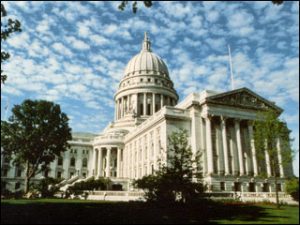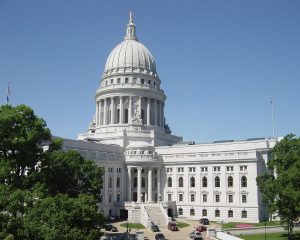A Retrospective on the “Year of Clean Drinking Water”
2019 was a memorable year for those interested in Wisconsin’s water resources. During his January 2019 “State of the State” address, Governor Tony Evers declared it the “Year of Clean Drinking Water in Wisconsin,” making water a primary focus of his first year in office. Around the same time, Assembly Speaker Robin Vos announced the creation of a water quality task force to study water contamination issues. Shortly thereafter, I  wrote a post describing a shorthand “top ten” list of issues for the administration and the task force to consider. In no particular order, my list included lead laterals, PFAS and other emerging contaminants, nutrient pollution, groundwater contamination and private wells, Great Lakes diversions, CAFO regulation, the DNR, infrastructure, high capacity wells and groundwater drawdown, and wetlands protection.
wrote a post describing a shorthand “top ten” list of issues for the administration and the task force to consider. In no particular order, my list included lead laterals, PFAS and other emerging contaminants, nutrient pollution, groundwater contamination and private wells, Great Lakes diversions, CAFO regulation, the DNR, infrastructure, high capacity wells and groundwater drawdown, and wetlands protection.
But now 2020 has arrived. What were the tangible results of the “Year of Clean Drinking Water”? Many promising efforts are underway and the state has made significant progress in some areas, but much remains to be done. The Governor’s declaration and the Speaker’s task force brought much needed public attention to water quality issues, but it would be a shame if that intense focus fades with the turning of the calendar. Governor Evers recognizes this, admitting in a recent interview that he knows the work will take much more than a year. And he expects Wisconsinites to support it in the longer term: “People like to have clean drinking water,” he said. “Who doesn’t want it? Who doesn’t need it?” Yet in his 2020 “State of the State” address Evers mentioned water only once, a late reference to “getting PFAS out of our water” as part of a list of things yet to be accomplished.
Here are the specifics of what happened last year:

 [The following is a guest post from Daniel Suhr ’08, a prior guest alumni contributor to the Blog.]
[The following is a guest post from Daniel Suhr ’08, a prior guest alumni contributor to the Blog.]